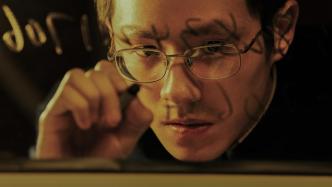
Note: This article contains spoilers
As one of the most successful film operators in China, Chen Sicheng's films directed/produced by him have achieved good box office results, but they have always been controversial, including this time's "Decoding". Putting aside those preconceived prejudices, placing "Decoding" in Chen Sicheng's series of works, "Decoding" is undoubtedly a leap forward. It is Chen Sicheng's most ambitious and cinematic work to date; for Liu Haoran, "Decoding" is also an important breakthrough in his performance.
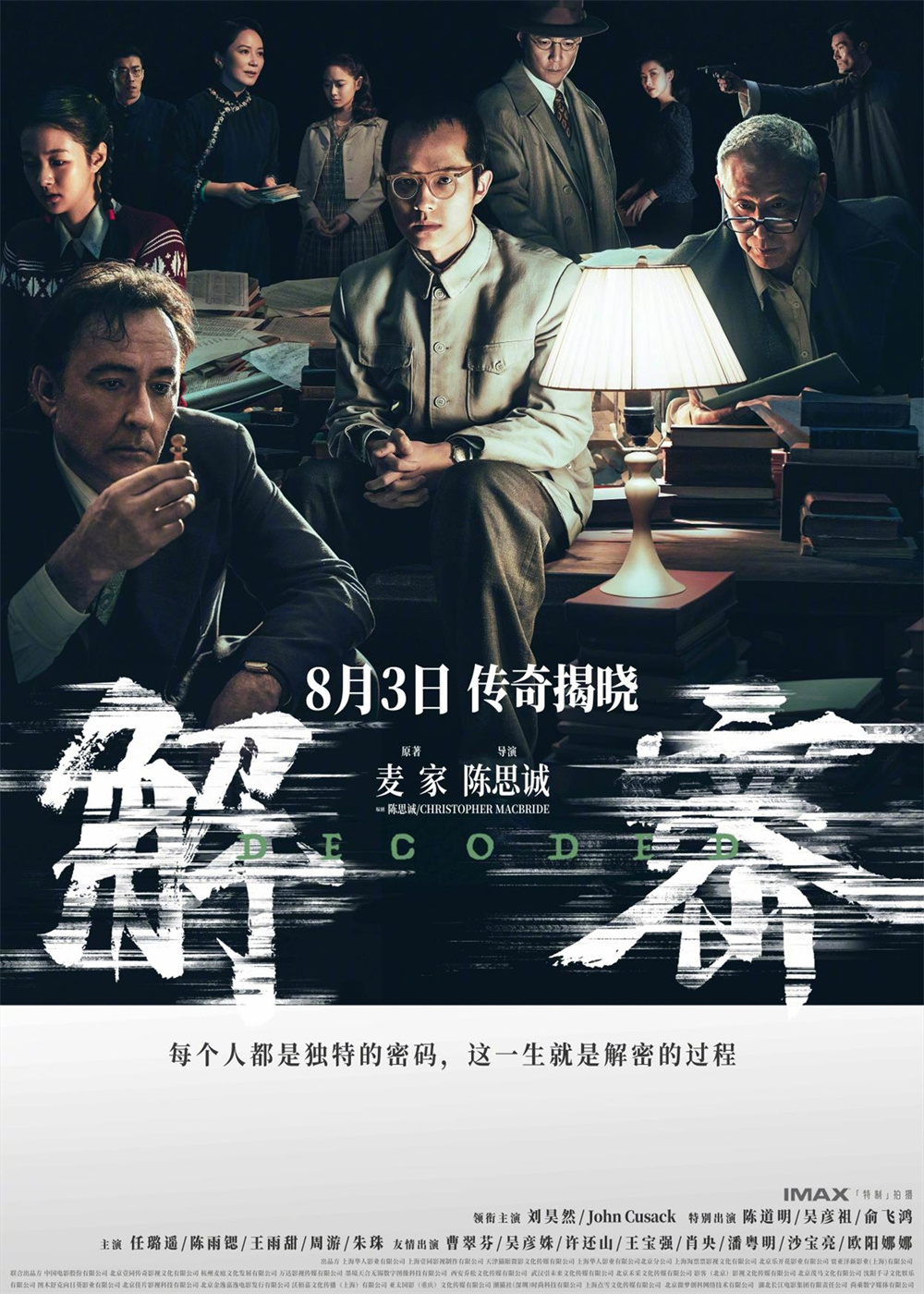
"Decryption" poster
"Decoded" is adapted from the novel of the same name by Mao Dun Literature Prize winner Mai Jia. Mai Jia's original work provides a solid foundation for the film. Chen Sicheng's slight adjustments based on the original work are also quite pleasing.
"Decryption" has two meanings. In the first meaning, decryption is to decipher the enemy's code in the turbulent international political situation.
Rong Jinzhen (Liu Haoran) showed amazing mathematical talent since childhood. He was raised by Xiao Li Li (Daniel Wu), the then president of the university, and his wife Ye Xiaoning (Yu Feihong), who were also like Rong Jinzhen's adoptive parents.
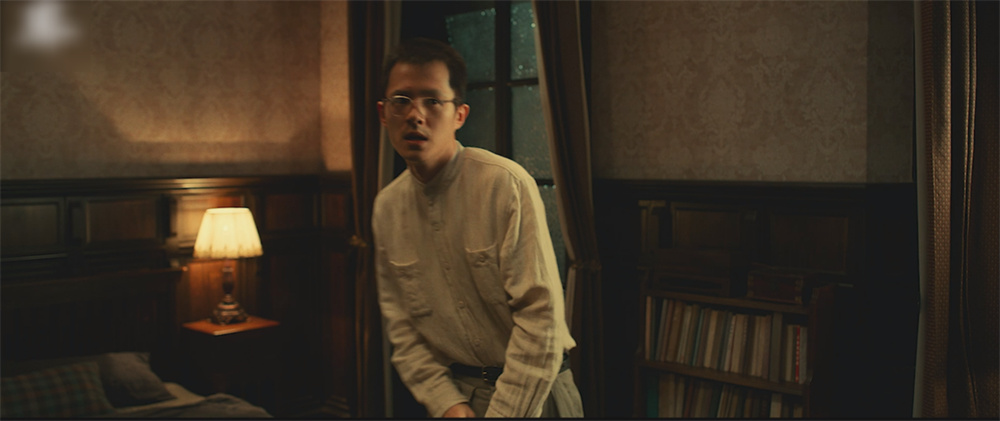
Rong Jinzhen (played by Liu Haoran)
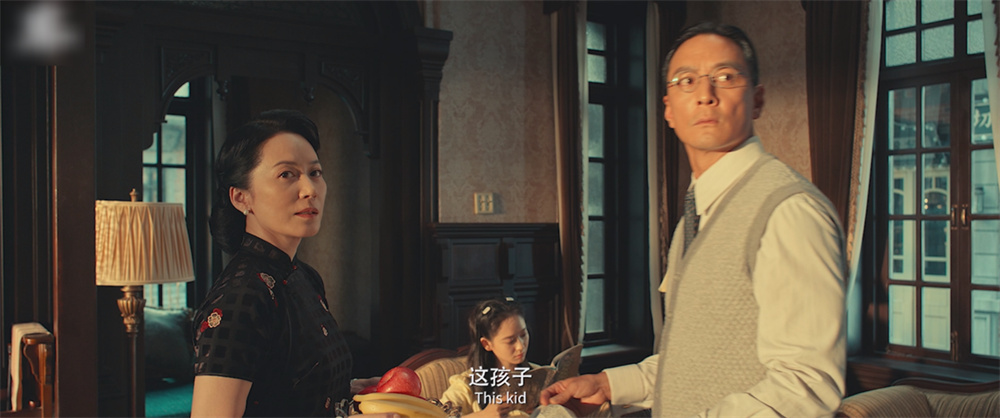
Rong Jinzhen's "adoptive parents" and "sister"
Around 1949, when Rong Jinzhen entered university, she was noticed by more people, including Zheng (Chen Daoming), the director of the mysterious department 701 Bureau, for solving the difficult problems assigned by the mathematics teacher Shees (John Cusack). After the founding of the People's Republic of China, Rong Jinzhen, under the leadership of Zheng, entered the door of code decryption.
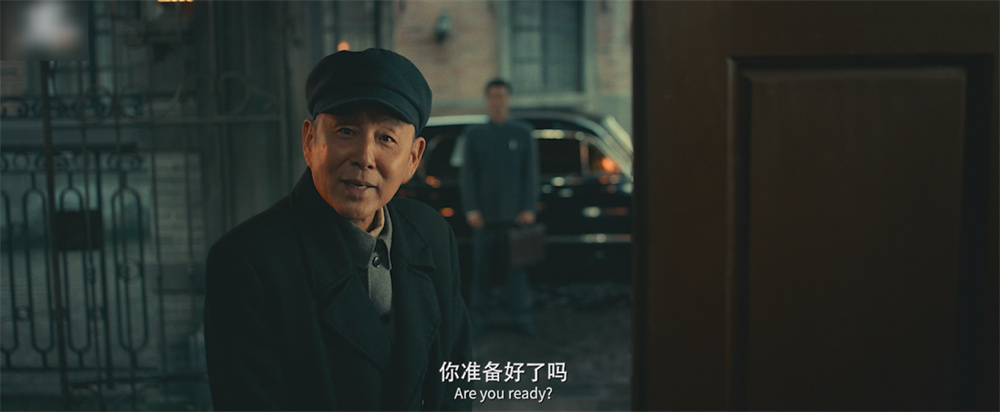
Director of the 701 Bureau, Zheng (played by Chen Daoming)
This narrative of "Decryption" is actually a legendary story of a hidden front, which is also the spy story familiar to the audience. In the intelligence battle, codes are used to encrypt intelligence information sent by the enemy, which may contain important military deployments, action plans or other key intelligence.
The codes in "Decryption" are not the codebooks commonly seen in previous spy dramas. The codes in the movie have evolved into a mathematical system, representing the application of the most advanced cryptographic technology and mathematical theory at the time. The mission of the 701 Bureau is to decipher these codes and obtain enemy intelligence, which is directly related to the country's strategic decision-making and military operations.
Traditional spy dramas are more about undercover and lurking, focusing on the characters' identity disguises and psychological games within the hostile forces. "Decryption" takes a different approach and tells the story of code-breaking experts on the hidden front. This highly confidential job seems much safer than undercover, but it brings no less challenges to Rong Jinzhen.
Originally, Rong Jinzhen had the opportunity to study at MIT, but due to the domestic situation, he missed the opportunity to study and develop in the field of pure mathematics research.
After joining Unit 701, Rong Jinzhen's talent became an important strategic resource for the country. He lived in an almost completely closed space, almost losing contact with the outside world. His life was no longer free. He had to follow strict confidentiality regulations and safety measures, could not leave the unit at will, and could not reveal the nature of his work to the outside world.
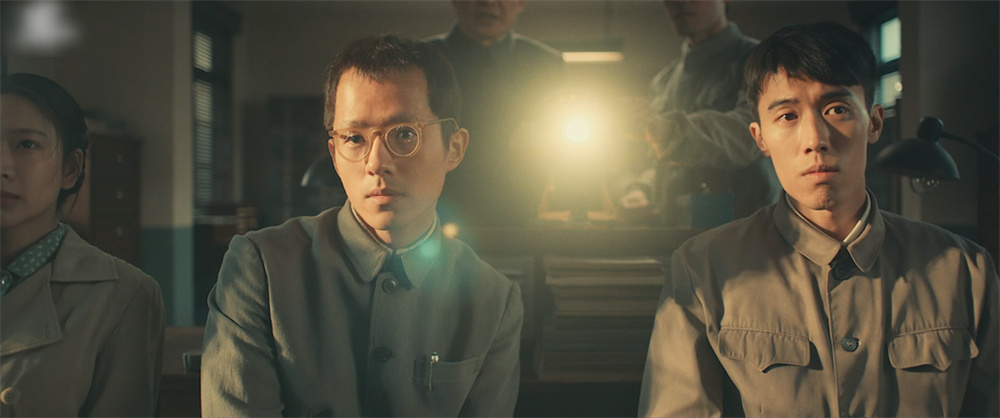
Rong Jinzhen enters Bureau 701
More importantly, code-breaking is a hard job that can "devour" people. Long periods of high concentration and high-intensity work "torture" Rong Jinzhen's body and mind. Rong Jinzhen not only has to fight against complex codes, but also has to fight against inner fear, loneliness and self-doubt.
Rong Jinzhen's image is different from the traditional image of a spy hero. He is an unknown hero who works silently behind the scenes and protects national security with wisdom and tenacity. His battlefield is an invisible ocean of codes. If talent is the sail, pressure and pain are his oars.
In this sense, isn't "Decryption" a mainstream work? Rong Jinzhen selflessly dedicated all his talent and youth to his beloved motherland.
However, the story of "Decoding" does not end there. Just like the theme sentence at the end of the movie, "Everyone is a unique code, and this life is the process of decoding", "Decoding" is also a biography of the genius Rong Jinzhen, a "decoding" of the genius, allowing the audience to get closer to the inner world of a genius than ever before.
Genius is lonely. Rong Jinzhen has a unique and profound way of thinking. He has a different perspective from ordinary people when understanding the world and solving problems. For example, he is highly sensitive and perceptive to numbers and dates. He marks his experiences with specific days.
Due to his strong interest in mathematics and in-depth research, he neglected his daily life and found it difficult to find like-minded friends. This made Rong Jinzhen seem lonely and out of place, making him difficult to understand. Even his mentor, Schiess, who was also a mathematical genius, misunderstood Rong Jinzhen at first.
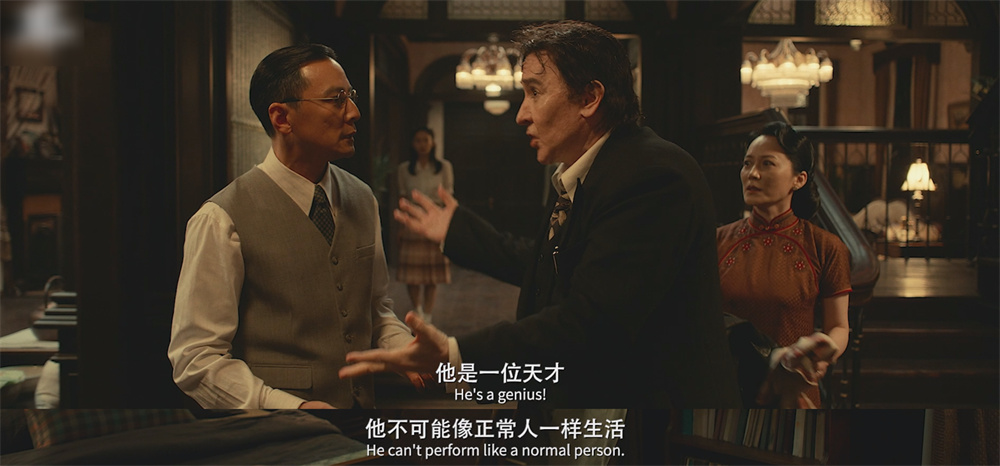
Mentor Seays (right, played by John Cusack) was surprised to find that Rong Jinzhen was a genius
But compared to many lonely geniuses who are not accepted and understood by the world, Rong Jinzhen is also "lucky". He met a warm and kind adoptive father and his family, Zheng who valued his talent, and a stage for him to display his talent. Especially since our country has a contemporary history full of twists and turns, the closed job unexpectedly allowed Rong Jinzhen to avoid the waves and avoid harm.
However, Rong Jinzhen is still in pain. To present the pain of a genius is what "Decryption" attempts to express in depth, and it is also a reflection of the depth of human nature that the film reaches.
In turbulent times, accidents and coincidences always outweigh certainties. Rong Jinzhen's life trajectory was largely determined by external factors. For example, his mathematical talent attracted the attention of Zheng, the director of the 701 Bureau, and he was subsequently invited to join the 701 unit. This turning point was not the result of his active choice. Later, due to the confidentiality of his work, he made many sacrifices in his personal life and almost cut off his relationship with his adoptive father's family. The experience of his adoptive father's family in the turbulent years was heartbreaking. Should Rong Jinzhen be glad that he escaped, or should he feel guilty for not being able to repay his kindness?
This is a little "noise" in the main theme of "Decryption". The existence of noise does not eliminate the main theme, but allows us to see more aspects of history and appreciate the heavy weight of sacrifices made by individuals for the national interest.
Rong Jinzhen's pain comes from the decryption itself. To use the words in the movie, decryption is the most advanced game and fight among human elites.
The genius of encryption and decryption involves highly complex mathematical theories, and only people with top intelligence and deep professional background can do this job. Decryption is a battle of intelligence, a confrontation between the smartest brains of mankind.
The game of genius also goes deep into the psychological level of the opponent, trying to understand the opponent's motivations, habits and weaknesses in order to formulate corresponding strategies. Rong Jinzhen and Xi Yisi belong to different camps, and they are the most familiar opponents to each other. Therefore, the game between them is not only a technical contest, but also includes the use of psychological tactics.
For example, after the carefully constructed "Purple Code" was cracked by Rong Jinzhen, Xi Yisi spent several years to take advantage of Rong Jinzhen's psychological weaknesses to create the "Black Code", and also "killed people and destroyed their hearts" by sending records and stealing notebooks. Rong Jinzhen was troubled by the "Black Code" for several years and was on the verge of mental collapse.
Decryption work is lonely and painful. Rong Jinzhen is facing one of the most complex cryptographic systems in the world, which requires Rong Jinzhen to immerse himself in complex data and logic for months or even years, repeatedly testing and verifying different decryption schemes. Long periods of loneliness and painful thinking make it impossible for Rong Jinzhen to rest and relax.
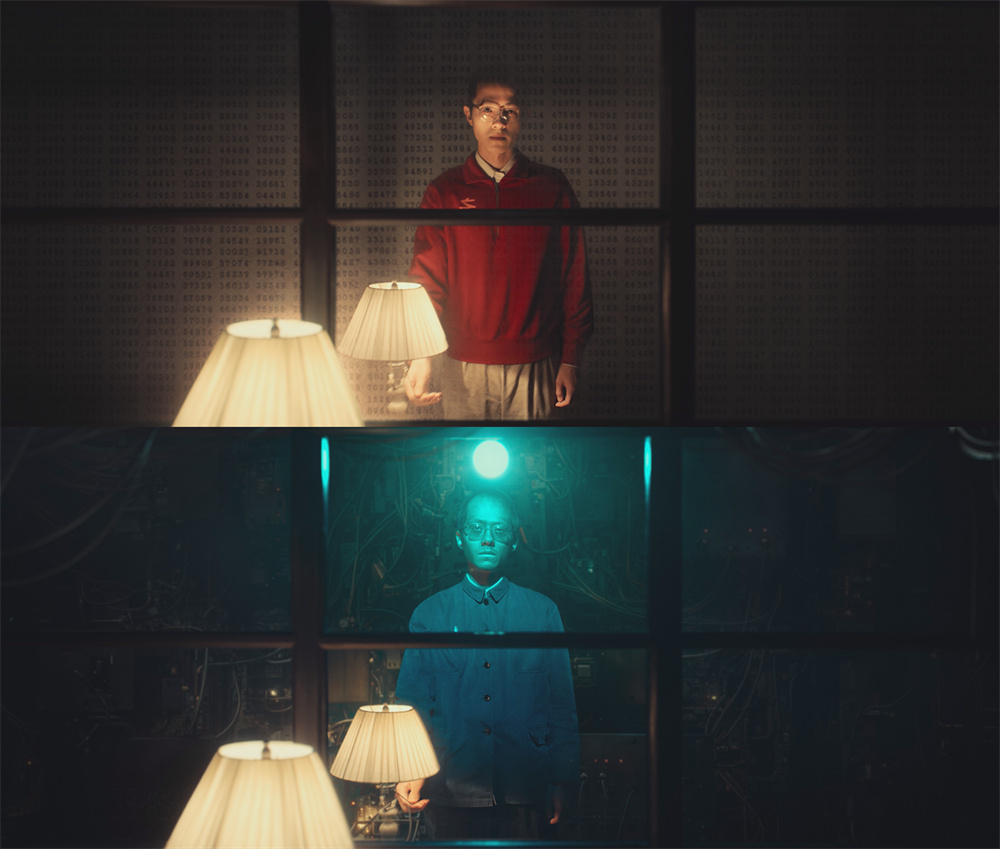
Rong Jinzhen at different stages of his life. Although he is only about 36 years old in the second picture, he already looks quite old.
In addition to the pressure of the work itself, Rong Jinzhen also bears high expectations from his superiors, colleagues and himself. He is well aware of the heavy responsibility he shoulders. If the decryption fails to succeed, it may cause immeasurable losses to national security.
To make matters worse, Rong Jinzhen himself is introverted, sensitive and suspicious, and encounters with unexpected assassinations have exacerbated his anxiety and stress. Xiaomei (played by Ren Luyao), who later became Rong Jinzhen's partner, loved Rong Jinzhen deeply. Seeing Rong Jinzhen fall into the nightmare of decryption again and again, she could do nothing to help. She almost completely lost the Rong Jinzhen who had been simply happy in love, and she endured a long period of loneliness. Behind the genius's great achievements is her silent dedication and sacrifice, which also needs to be seen and remembered.
There are long sections of Rong Jinzhen's dreams in the movie. The red beach, the silent giant, the golden reeds, the coded maze, the mysterious walrus, the tangled IV tubes, the collapsed Ferris wheel, the chase on the train, the room surrounded by Eniak, etc. They are all visual wonders, and they are magnificent on the big screen. From the perspective of film aesthetics, these dreams reflect Chen Sicheng's artistic pursuit and fully embody the "dream-making" attribute of the film.
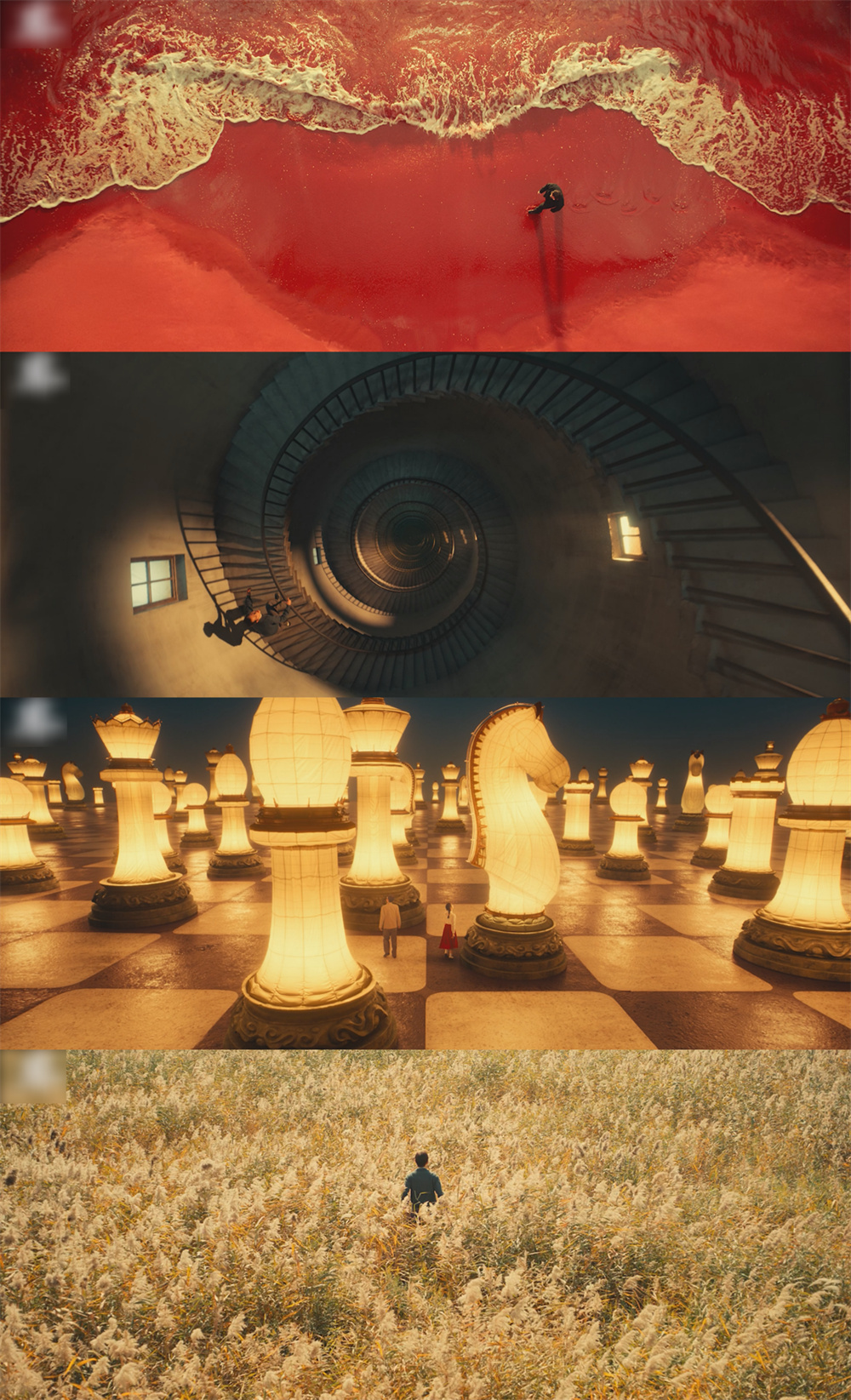
Rong Jinzhen repeatedly falls into various dreams
Dreams are also the externalization of Rong Jinzhen's complex emotions and deep motivations. Dreams are a haven from reality, a channel for emotional catharsis, a source of inspiration and a space for self-reflection, and a reflection of pain and struggle.
Among the multiple relationships surrounding Rong Jinzhen, Rong Jinzhen and Xi Yis are the most important one. They are teacher and student, "enemies", opponents, but also friends and confidants.
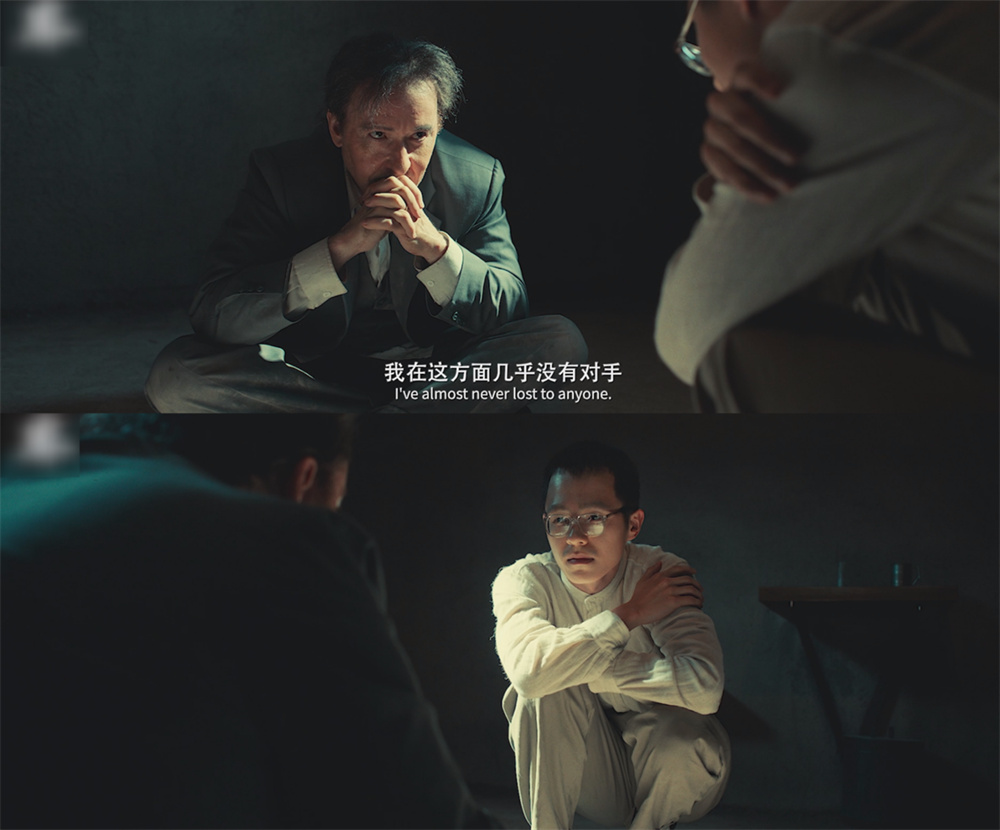
They are rivals, but also confidants.
No one understands each other better than they do. Not only because of their shared passion for mathematics and decryption, or their admiration and appreciation for the talents and abilities of their peers, but also because of the geniuses' deep understanding of their own pain - they understand each other's torture in the pursuit of excellence, and they can empathize with each other's helpless fate in turbulent historical times.
Pain makes them recognize each other again and again, and they get closer to each other. This resonance makes them emotionally connected. They cherish each other and redeem each other. This is the starting point of the story - Xi Yisi cherishes Rong Jinzhen's talent, and it is also the end point - Rong Jinzhen chooses to protect Xi Yisi after cracking the "black code". "Decryption" handles the relationship between the two in this way, which is a great tenderness and kindness.
"Decoding" is a successful "biography". After "decoding" a genius, we deeply felt his great pain, as well as the fragility, struggle and tenacity hidden behind the pain. Rong Jinzhen found strength in pain, nurtured immortal creativity in loneliness, defended the dignity of intellect, and demonstrated an invincible and indestructible belief. And finally, after such a long and painful self-torture, Rong Jinzhen finally gained peace.
It is true that Chen Sicheng's movies are always full of controversy, and his appearance at the end of "The Decoder" is bound to be a joke (unnecessarily, the strokes and strokes are written in the wrong order), but "The Decoder" is indeed his best work. Through the movie, ordinary people like us have never been closer to the painful heart of a genius, and its scars and purity and nobility are enough to make people tremble.


